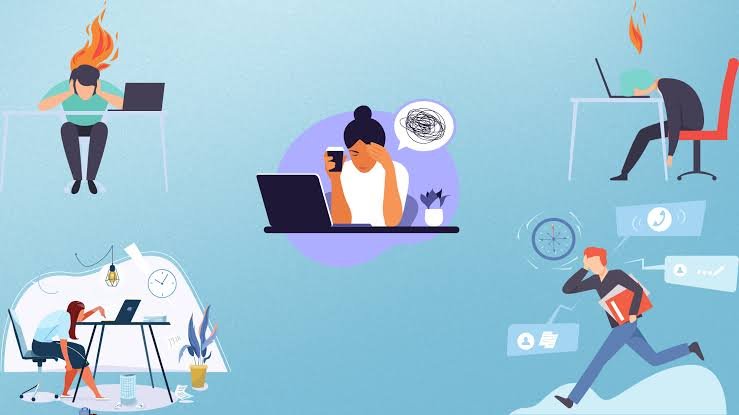The internet told us this was the dream: Start a YouTube channel.
Go viral on TikTok. Launch a Substack, a course, a podcast, a brand. Monetize your knowledge, your passion, your lifestyle.
And to be fair, many have done it.
But here’s what the dream didn’t tell you: Burnout has a bill.Hustling comes with hidden costs. And not all digital income is financial freedom.
We’re living in the age of the creator economy, a space where anyone with a phone and WiFi can turn content into cash. From Lagos to Los Angeles, it’s now common to meet writers, designers, comedians, coders, and fashion curators who earn entirely online. But in chasing digital relevance, many are quietly draining time, energy, and resources without realizing the financial toll.
Let’s talk about the hidden side of the hustle.
Time ≠ Money (Until It Does)
The early stages of most digital hustles are massively time-intensive. You're shooting content, editing videos, tweaking captions, building email lists, often for weeks or months with little return. This isn’t wasted effort, but it is an unpaid investment. Without a system to track ROI (return on investment), many creators pour in hours with no financial strategy. If you're trading all your time for visibility and not building monetization channels early, you're running on fumes.
Content Is a Product, and Products Have Costs
Running a digital brand means you’re essentially a micro-enterprise: You pay for tools: Canva Pro, Zoom, editing software, domain names. You invest in gear: lighting, microphones, phones, laptops. You incur data costs, power costs, subscriptions, often silently. Many digital creators undervalue these overheads, and in doing so, inflate their profit margins on paper. Just because you’re not renting office space doesn’t mean your hustle is free.
Mental Fatigue Affects Financial Discipline
Being in “always-on” mode impacts your decision-making, including around money. Studies show burnout reduces your ability to plan long-term, delay gratification, or stick to financial goals. That constant pressure to produce can also lead to impulse spending in the name of “staying inspired.”In short:
Creative fatigue can quietly become financial fatigue.
Inconsistent Income is as Unstable Planning
Unlike a salary job, digital hustle earnings often come in spikes: One viral moment. One big client. One affiliate windfall. But the rest of the time, you're riding lows or unpredictability. That makes budgeting, saving, and investing harder, unless you’ve built financial buffers or structured income streams (like retainers, subscriptions, or productized services).
It’s Still a Business, Treat It Like One
Here’s the mindset shift:
If your hustle is earning you money, treat it like a financial engine. Separate personal and business accounts. Track income and expenses. Pay yourself a salary. Save for taxes. Reinvest strategically. You may be a solo creator, but your hustle deserves CFO-level attention.
Final Thought
The creator economy is full of potential. But it’s not just about going viral, it’s about staying viable.Real freedom isn’t just making money online. It’s making it sustainably. So before you burn out in pursuit of the dream, check your numbers.Check your time. Check your peace. Because the real flex in this new world? Financial clarity, not just digital visibility.
Posted Using INLEO

Congratulations @the-african-man! You have completed the following achievement on the Hive blockchain And have been rewarded with New badge(s)
You can view your badges on your board and compare yourself to others in the Ranking
If you no longer want to receive notifications, reply to this comment with the word
STOP